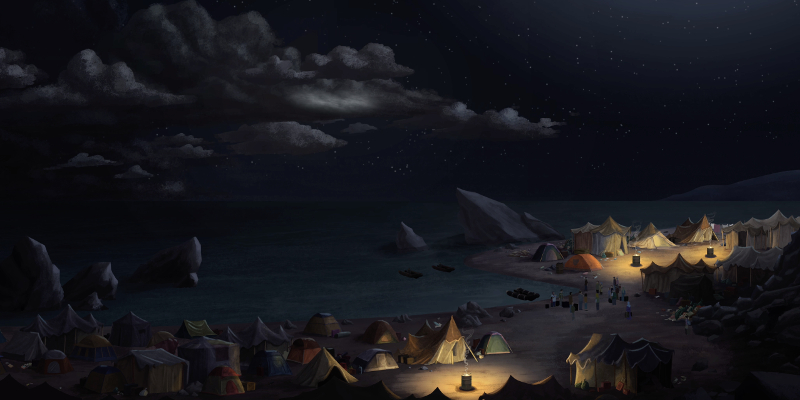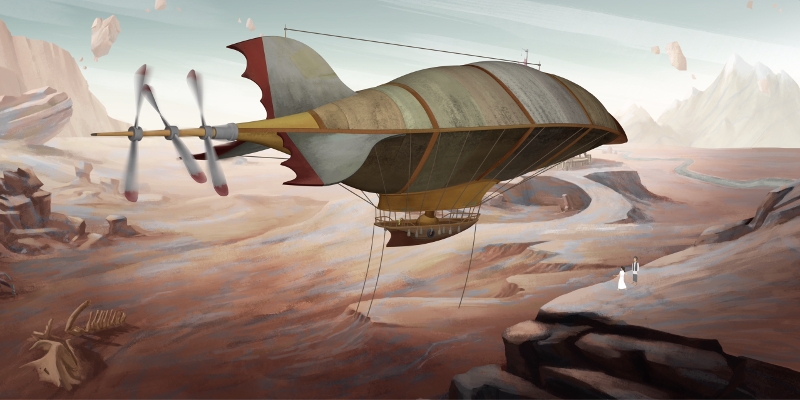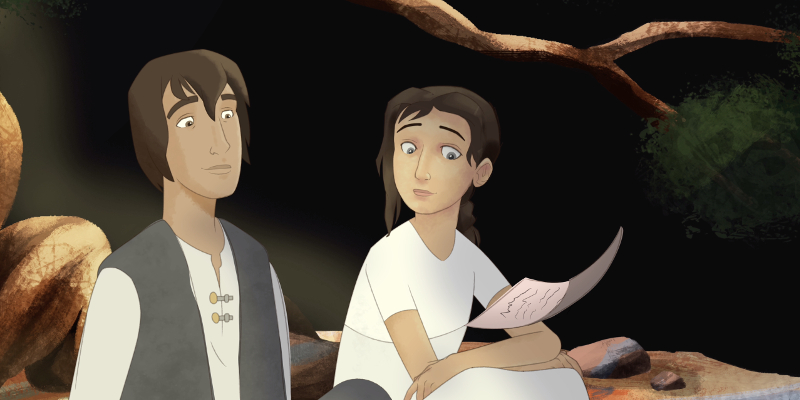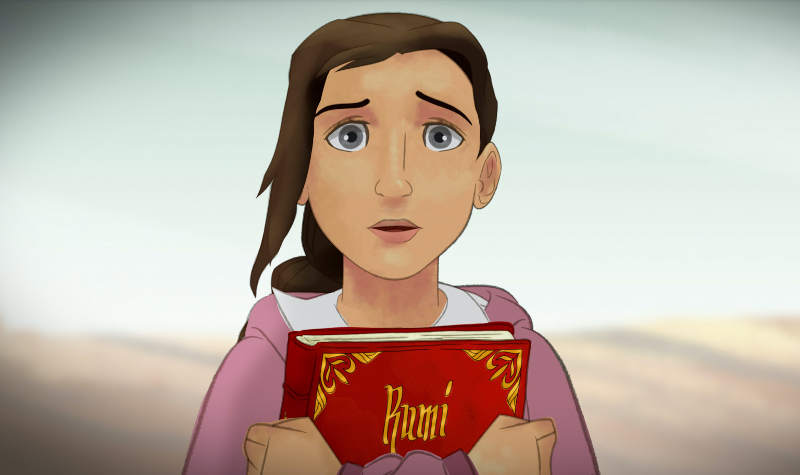Director – Alex Kronemer – 2021 – US, Canada – 88m
****1/2
A young Syrian girl becomes a refugee at the same time as she explores the writings of 13th century poet Rumi in her dreams – from the Annecy 2021 Animation Festival in the Official Competition section
Lamya (Millie Davis) is a young girl living with her mum (Aya Bryn) in a city in Syria, her dad having been killed when he went out on a protest. Her tutor Mr. Habadani (Raoul Bhaneja) lends her a thick book of selected poetry by Rumi knowing her to be a voracious reader who will both get much out of the book and take good care of it.
Distant bombing raids seem to come closer every day until one day everyone needs to evacuate the locality. The day in question, Lamya has begged her mum to let her go to the shops with friends. Buying treats, she puts her backpack containing the poetry book on the floor only to find it gone seconds later.

The thief, a young boy named Bassam (Nissae Isen), is reprimanded by his mother and told to return the bag. A bomb raid turns the locality upside down. Unaware of Bassam and what’s been happening with him, Lamya finds the returned bag in the wreckage. Her mum takes her on a journey to cross the Mediterranean to safety. As refugees in a foreign land, she and the repentant Bassam will become friends. He can’t read, so she will read to him from the book alongside other children.
Weaving around all these goings-on in 2021 is a parallel plot strand set in 1221 mixing up Lamya’s dream, the life of Jalal Rumi (Mena Massoud) and the content of the poems of his that Lamya is reading. An urban dweller like Lamya, he too finds his city under siege from invading forces, in his case the Mongols who ride in on horseback destroying everything in their path. Before the raid, the city is a centre for air traffic with dirigibles flying to and fro, ferrying passengers.

While his dad Baha Walad (Faran Tahir) uses this unsettled time as the chance to take his son on a pilgrimage to Mecca, Rumi grapples with the deep-seated need he feels to settle the score with his oppressors.
The 2D character animation might reasonably be described as limited – the faces aren’t that detailed and don’t move all that much – and at first I thought this was going to detract from the viewing experience. However, as it went on, the stories and the images started to get under my skin in a way that perhaps a fuller, less stark use of the medium would do. I say stories, plural, because the narrative becomes increasingly fractured as it progresses.
In the 2021 plot, mother and daughter become separated during a terrifying storm at sea and Lamya’s life becomes increasingly episodic. That renders it more like the 1221 plot in which Rumi seems to go from one episode to another.

Some of the images link the two time periods together. The 1221 plot being essentially Lamya’s dream rather than a straight, historical narrative, she appears within it and talks to Rumi. The film overall starts off with her in carefree mode chasing fireflies, a mood soon thrown off-balance by two glowing red eyes in the darkness, revealed in a later scene as the glowing cigarette tips of two soldiers exiting a dark alley. These red ‘eyes’ anticipate the red-tipped mobile plant tendrils that travel ahead of the incoming Mongol cavalry which move ruthlessly across desert terrain like malevolent, U-shaped metal rods spiked at both ends. The invasion of Rumi’s home city is represented by its being overrun by this vegetation.
The effect of such scenes, and of Rumi’s questioning his ongoing situation which plays out alongside them, is to underscore the plight of the refugees in both time periods, people who through no fault of their own find themselves living in unwelcome environments far from their original home. Rather than moralising or preaching though, the parallel narratives show us children trying to make sense of their appalling circumstances and make the best of it.
The 2D animation lends a graphic starkness to the proceedings that a live action realisation would have been unlikely to have achieved as effectively. While it’s true that this film is a plea for understanding the plight of refugees, it’s as much about children trying to make sense of a world around them in which everything they have hitherto taken for granted is suddenly turned upside down. An immensely powerful film with a voice that needs to be widely heard.
Lamya’s Poem plays in the Annecy Animation Festival 2021 which is taking place right now in both online and hybrid editions this year in the Official Competition section. The film is not available in the festival’s online version.
Clip:
Festival Trailer:
Festivals
2021
Annecy
